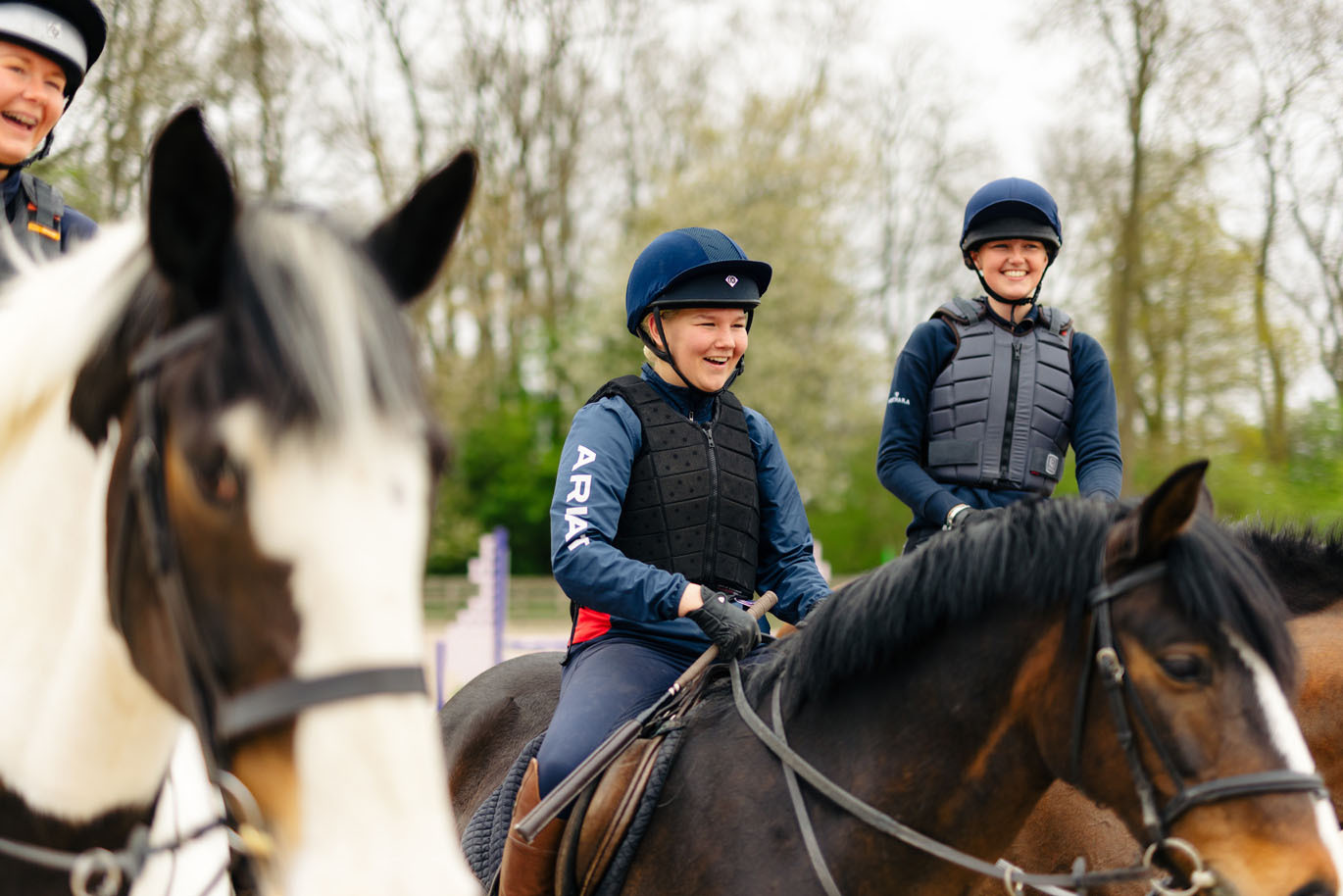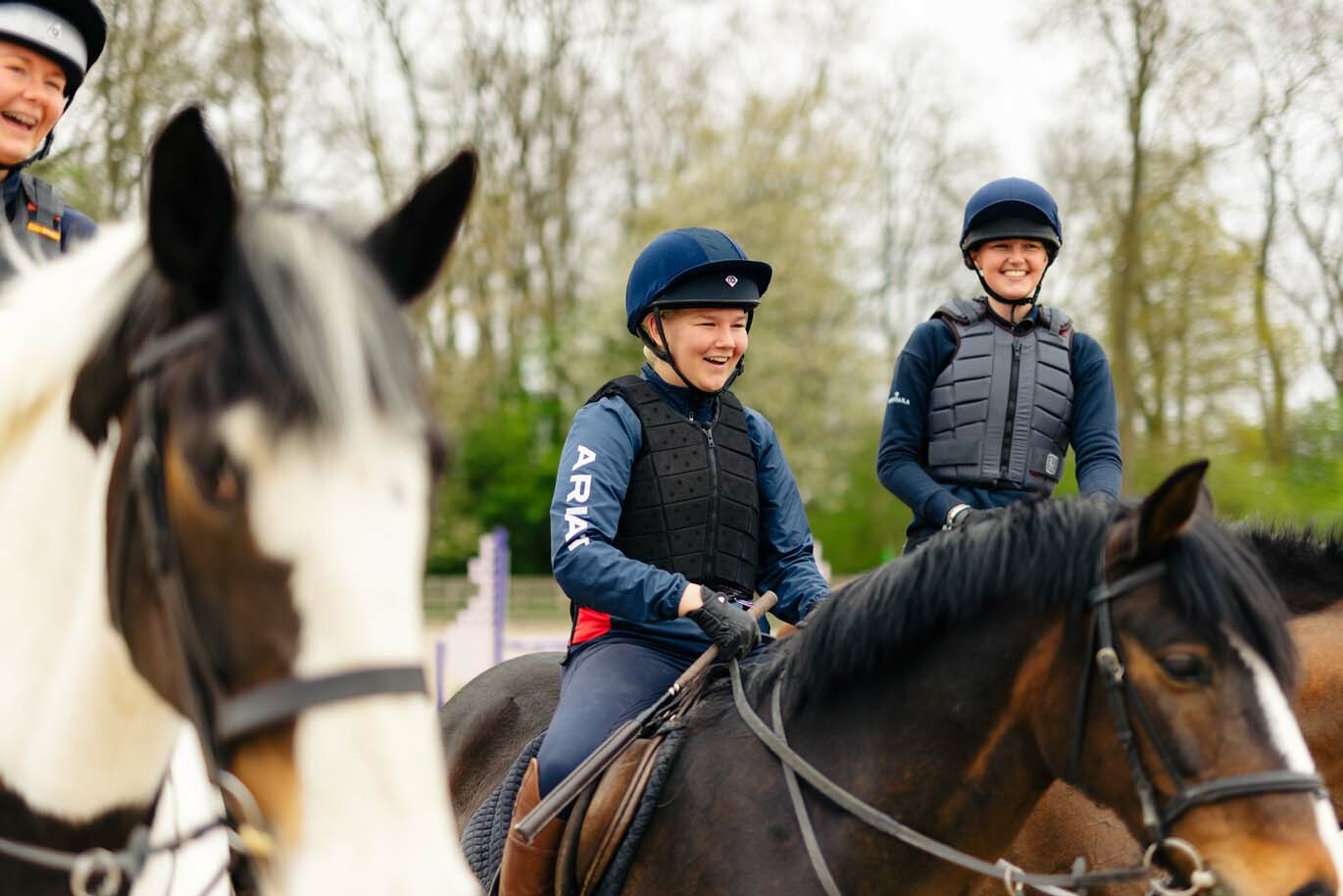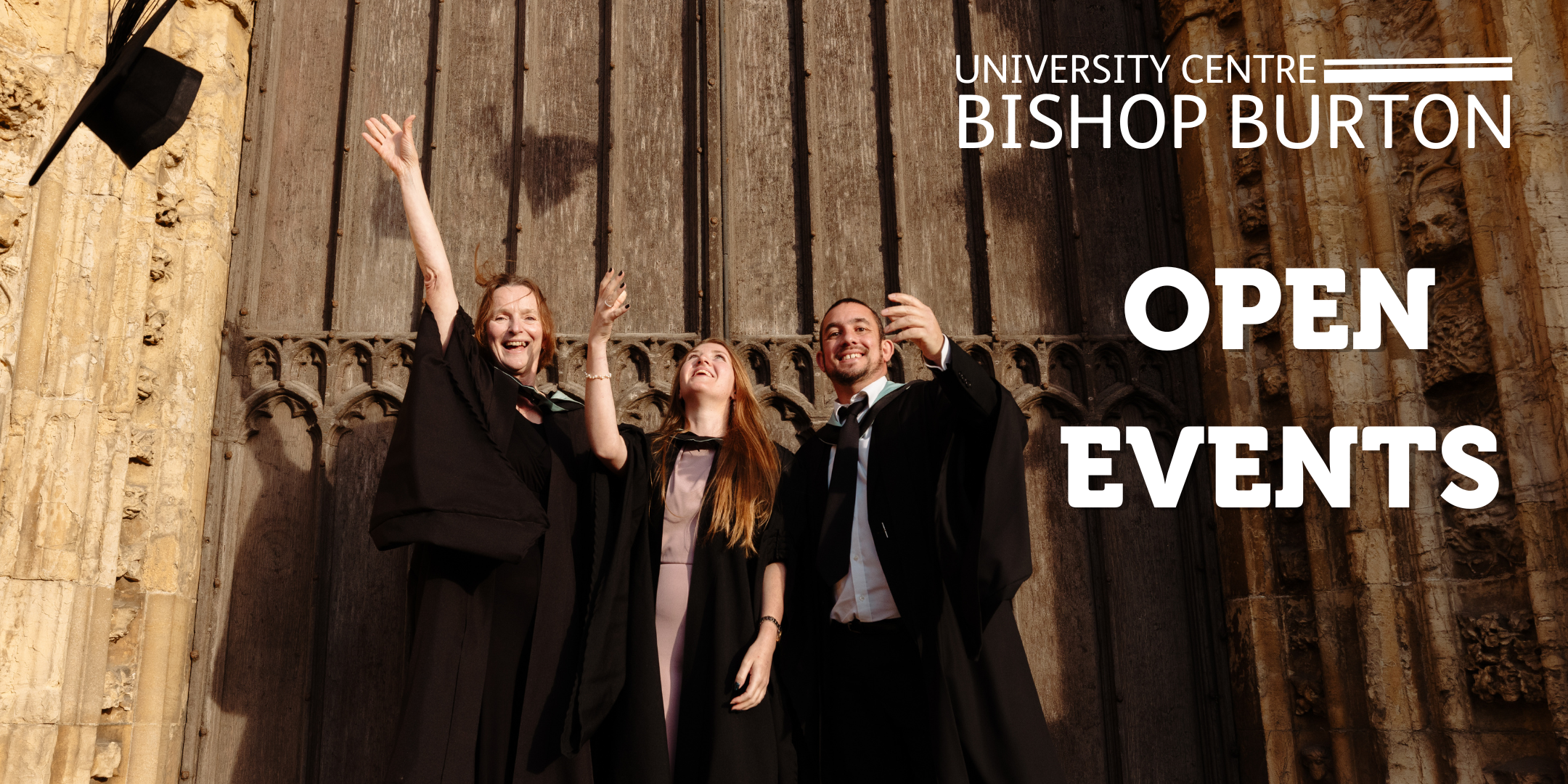
BSc (Hons) Equine Sports Science and Coaching
Apply today Enquire about this course Download Course InformationJump to
Subject
Equine
Level
Bachelors Degree (Level 6)
Study Mode
Full-Time
Duration
3 years
Start Date
September 2026
UCAS Course Code
D3C6
The course
Equestrian sport is benefitting from advances in technology and analysis techniques to improve both rider and equine performance. This degree programme will equip you with the knowledge, skills and insight to be part of this progression.
There is demand within the equine industry for highly qualified coaches, and our programme incorporates applied modules at all levels so that you can develop into a coach who can apply scientific training and coaching techniques to equestrian sport.
During the final year you will develop skills in coaching specialist populations, equipping you with confidence and experience to provide inclusive practice, supporting widening participation in equine sport.
Our coaching and equitation modules are taught in line with industry qualifications and you will be encouraged and supported to complete British Horse Society stages alongside your degree in preparation for entering the industry in instructor-based roles, in either a freelance capacity or within equine centres.
You will study a breadth of scientific modules such as horse anatomy, exercise physiology and sport injury, giving you sound underpinning for entering applied equine facility settings. You will also obtain key business acumen to prepare to manage your own business or work within management roles. You will also develop valuable skills in reflective practice, communication and evaluation, which are essential for working in performance settings.
Course Information
- Develop you into a capable and confident coach, skilled at developing performance and fitness of the horse and rider with an underpinning of highly relevant sport science knowledge
- Give you sound academic knowledge of coaching styles, techniques and strategies available for athletic performance in sports particularly the equestrian athlete.
- Provide you with the theoretical underpinning of scientific principles of sport science, fitness and training to develop performance.
- Equip you with vocational skills essential for entering a diverse range of employment opportunities within equine coaching, rider fitness and training
- Develop your skills and knowledge in assessing and recommending strategies to improve horse and rider performance, appreciating physical, psychological and behavioural factors
- Help you to become proactive and independent, able to apply and develop your own perspectives and explore strategies to enhance rider and horse performance
Year 1
- Academic, Employment and Professional Skills
- Equine Health and Husbandry
- Equine Sport Coaching
- Equine Anatomy and Physiology
- Introduction to Research Skills
- Equine Multi-Disciplinary Team
- Introduction to Sport Science
- Equitation* or Equine Nutrition (*A ridden assessment will be required. Option modules will run where there are sufficient student numbers, otherwise an alternative option module may be offered.)
Year 2
- Research Methods and Analysis
- Equine Exercise Physiology
- Rider Health and Fitness
- Enterprise and Entrepreneurship
- Advanced Equine Coaching
- Sport Psychology and Behaviour Changes
- Option Module: Advanced Equitation* or Equine Behaviour and Welfare (*A ridden assessment will be required. Option modules will run where there are sufficient student numbers, otherwise an alternative option module may be offered.)
Year 3
- Dissertation
- Rider Performance
- Applied Equine Biomechanics
- Coaching Specialist Populations
- Equine Sport Injury
- Contemporary Issues in Equestrianism
You will be required to have:
- A minimum of 96 UCAS points
AND
- GCSE English at grade 4 or above, or an equivalent qualification
- A suitable reference
- Equitation modules require riding standards to be at the level of working towards BHS Stage 2
UCAS points may be from qualifications such as A Levels, T Levels, BTEC Level 3 Extended Diplomas, Access to Higher Education Diplomas, and City and Guilds Advanced Technical Diplomas amongst others. Please use the UCAS Tariff points calculator to determine the UCAS points value of your qualifications.
Life and/or experience of non-traditional students will be taken into account when considering applications. The successful completion of an entry task may be required when considering applications without the required formal entry qualifications.
If your first language is not English, or a Tier 4 student visa to study is required and GCSE grade C/4 English or equivalent is not held, English language proficiency level such as International English Language Testing System (IELTS) 6.0 overall (with a minimum 5.5 in each skill) will need evidencing.
Advanced entry may be possible due to prior experience or certificated learning; applicants will need to complete the accreditation of prior learning approval process.
This programme is delivered with a variety of learning and teaching approaches, utilising excellent onsite resources and extensive industry links for applied aspects. For all modules, there are theory lectures delivered, aimed at providing the core content and underpinning knowledge. Lectures are used to convey the basic concepts, and facilitate further expansion of such concepts through your independent study.
To complement the theory lectures, you will have group seminars and practical sessions that are used to reinforce those concepts delivered theoretically. This programme has a focus on practical ability in a yard and coaching setting, therefore many modules will have theory content supported by active development of practical skills utilising specialist equipment.
The teaching methods focus on facilitating a student-centred approach to enhance the independent learning that takes place outside of the classroom.
You can expect:
Experienced, supportive and motivated staff with both academic and industrial experience.
Access to an Online Virtual Learning Environment called iLearn, which is used to enhance and facilitate teaching and independent learning on all programmes.
Guest lectures and demonstrations from a range of visiting speakers and off-site trips.
Contact time includes approximately 12-13 hours a week in the first two years and 9-11 hours a week in the final year, incorporating lectures, seminars, practicals and tutorials.
You are also expected to carry out a significant amount of independent study in addition to contact time (approximately 25-30 hours a week). Independent study includes reading around the subject, preparing for tutorials and seminars, preparing for, and completing, module assessments and revision for examinations; forming an essential part of your learning journey.
- A tablet, smartphone, laptop or stationery to take notes in lectures and seminars.
- White laboratory coat.
- Riding hat to current (PAS015 (2011) with BSI kitemark) standard in a dark plain colour or silk.
- Plain, dark coloured trousers or breeches or jodhpurs, not jeans.
- Gloves for horse handling.
- Suitable yard boots or wellington boots (NB: Boots are not permitted within the classroom, so a change of footwear will be required).
- If you are undertaking any riding at Bishop Burton, you will also need: A body protector (BETA Level Three 2018. We do not permit air jackets in any day to day sessions), long riding boots or short boots with gaiters, schooling/jumping whip, long sleeved base layer or thin top, soft peaked hat or preferably jockey skull hat and silk to the standards listed above.
- You may require an enhanced DBS Disclosure, which would be at your own expense. You can check the current cost on the www.gov.uk website.
- Any educational visits/trips and enrichment activities will be additional to the course fees, students will be made aware of these optional visits and associated costs as required.
- Students can access free British Horse Society exam training onsite during their studies, the examination cost and BHS membership is an additional cost (exams can be undertaken onsite).
- On successful completion of the programme, you will have the opportunity to graduate at a ceremony wearing formal dress. The hire of the formal dress is an additional cost.
Validated by University of Lincoln
We are proud to collaborate with University of Lincoln on the validation of this course.
View the policies and procedures you would be agreeing to comply with by registering for this programme.
Financial Information
Find the full details of the fees associated with this programme and the financial support available.



